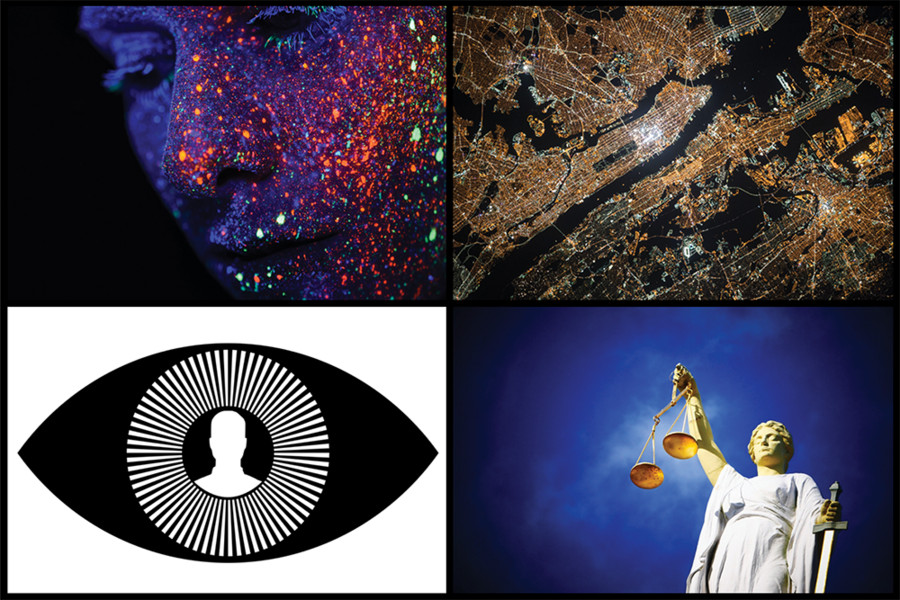
Robohub.org
Fostering ethical thinking in computing

A case studies series from the Social and Ethical Responsibilities of Computing program at MIT delves into a range of topics, from social and ethical implications of computing technologies and the racial disparities that can arise from deploying facial recognition technology in unregulated, real-world settings to the biases of risk prediction algorithms in the criminal justice system and the politicization of data collection.
By Terri Park | MIT Schwarzman College of Computing
Traditional computer scientists and engineers are trained to develop solutions for specific needs, but aren’t always trained to consider their broader implications. Each new technology generation, and particularly the rise of artificial intelligence, leads to new kinds of systems, new ways of creating tools, and new forms of data, for which norms, rules, and laws frequently have yet to catch up. The kinds of impact that such innovations have in the world has often not been apparent until many years later.
As part of the efforts in Social and Ethical Responsibilities of Computing (SERC) within the MIT Stephen A. Schwarzman College of Computing, a new case studies series examines social, ethical, and policy challenges of present-day efforts in computing with the aim of facilitating the development of responsible “habits of mind and action” for those who create and deploy computing technologies.
“Advances in computing have undeniably changed much of how we live and work. Understanding and incorporating broader social context is becoming ever more critical,” says Daniel Huttenlocher, dean of the MIT Schwarzman College of Computing. “This case study series is designed to be a basis for discussions in the classroom and beyond, regarding social, ethical, economic, and other implications so that students and researchers can pursue the development of technology across domains in a holistic manner that addresses these important issues.”
A modular system
By design, the case studies are brief and modular to allow users to mix and match the content to fit a variety of pedagogical needs. Series editors David Kaiser and Julie Shah, who are the associate deans for SERC, structured the cases primarily to be appropriate for undergraduate instruction across a range of classes and fields of study.
“Our goal was to provide a seamless way for instructors to integrate cases into an existing course or cluster several cases together to support a broader module within a course. They might also use the cases as a starting point to design new courses that focus squarely on themes of social and ethical responsibilities of computing,” says Kaiser, the Germeshausen Professor of the History of Science and professor of physics.
Shah, an associate professor of aeronautics and astronautics and a roboticist who designs systems in which humans and machines operate side by side, expects that the cases will also be of interest to those outside of academia, including computing professionals, policy specialists, and general readers. In curating the series, Shah says that “we interpret ‘social and ethical responsibilities of computing’ broadly to focus on perspectives of people who are affected by various technologies, as well as focus on perspectives of designers and engineers.”
The cases are not limited to a particular format and can take shape in various forms — from a magazine-like feature article or Socratic dialogues to choose-your-own-adventure stories or role-playing games grounded in empirical research. Each case study is brief, but includes accompanying notes and references to facilitate more in-depth exploration of a given topic. Multimedia projects will also be considered. “The main goal is to present important material — based on original research — in engaging ways to broad audiences of non-specialists,” says Kaiser.
The SERC case studies are specially commissioned and written by scholars who conduct research centrally on the subject of the piece. Kaiser and Shah approached researchers from within MIT as well as from other academic institutions to bring in a mix of diverse voices on a spectrum of topics. Some cases focus on a particular technology or on trends across platforms, while others assess social, historical, philosophical, legal, and cultural facets that are relevant for thinking critically about current efforts in computing and data sciences.
The cases published in the inaugural issue place readers in various settings that challenge them to consider the social and ethical implications of computing technologies, such as how social media services and surveillance tools are built; the racial disparities that can arise from deploying facial recognition technology in unregulated, real-world settings; the biases of risk prediction algorithms in the criminal justice system; and the politicization of data collection.
“Most of us agree that we want computing to work for social good, but which good? Whose good? Whose needs and values and worldviews are prioritized and whose are overlooked?” says Catherine D’Ignazio, an assistant professor of urban science and planning and director of the Data + Feminism Lab at MIT.
D’Ignazio’s case for the series, co-authored with Lauren Klein, an associate professor in the English and Quantitative Theory and Methods departments at Emory University, introduces readers to the idea that while data are useful, they are not always neutral. “These case studies help us understand the unequal histories that shape our technological systems as well as study their disparate outcomes and effects. They are an exciting step towards holistic, sociotechnical thinking and making.”
Rigorously reviewed
Kaiser and Shah formed an editorial board composed of 55 faculty members and senior researchers associated with 19 departments, labs, and centers at MIT, and instituted a rigorous peer-review policy model commonly adopted by specialized journals. Members of the editorial board will also help commission topics for new cases and help identify authors for a given topic.
For each submission, the series editors collect four to six peer reviews, with reviewers mostly drawn from the editorial board. For each case, half the reviewers come from fields in computing and data sciences and half from fields in the humanities, arts, and social sciences, to ensure balance of topics and presentation within a given case study and across the series.
“Over the past two decades I’ve become a bit jaded when it comes to the academic review process, and so I was particularly heartened to see such care and thought put into all of the reviews,” says Hany Farid, a professor at the University of California at Berkeley with a joint appointment in the Department of Electrical Engineering and Computer Sciences and the School of Information. “The constructive review process made our case study significantly stronger.”
Farid’s case, “The Dangers of Risk Prediction in the Criminal Justice System,” which he penned with Julia Dressel, recently a student of computer science at Dartmouth College, is one of the four commissioned pieces featured in the inaugural issue.
Cases are additionally reviewed by undergraduate volunteers, who help the series editors gauge each submission for balance, accessibility for students in multiple fields of study, and possibilities for adoption in specific courses. The students also work with them to create original homework problems and active learning projects to accompany each case study, to further facilitate adoption of the original materials across a range of existing undergraduate subjects.
“I volunteered to work with this group because I believe that it’s incredibly important for those working in computer science to include thinking about ethics not as an afterthought, but integrated into every step and decision that is made, says Annie Snyder, a mathematical economics sophomore and a member of the MIT Schwarzman College of Computing’s Undergraduate Advisory Group. “While this is a massive issue to take on, this project is an amazing opportunity to start building an ethical culture amongst the incredibly talented students at MIT who will hopefully carry it forward into their own projects and workplace.”
New sets of case studies, produced with support from the MIT Press’ Open Publishing Services program, will be published twice a year via the Knowledge Futures Group’s PubPub platform. The SERC case studies are made available for free on an open-access basis, under Creative Commons licensing terms. Authors retain copyright, enabling them to reuse and republish their work in more specialized scholarly publications.
“It was important to us to approach this project in an inclusive way and lower the barrier for people to be able to access this content. These are complex issues that we need to deal with, and we hope that by making the cases widely available, more people will engage in social and ethical considerations as they’re studying and developing computing technologies,” says Shah.
tags: ethics




